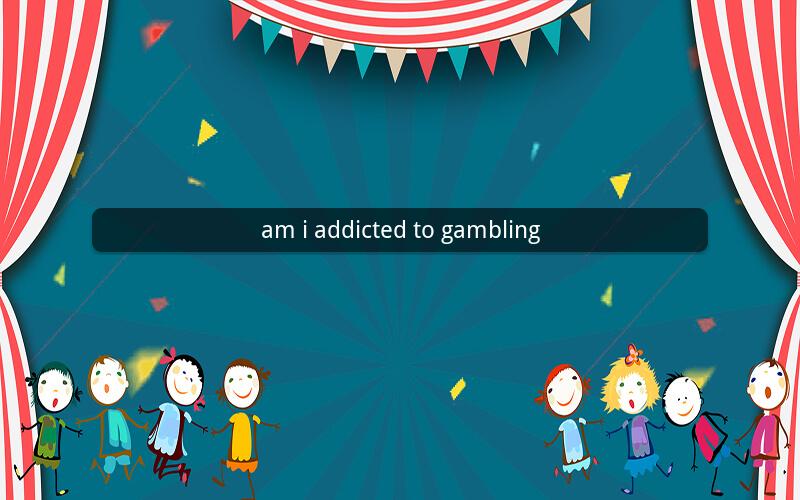
Contents
1. Understanding Gambling Addiction
2. Signs and Symptoms of Gambling Addiction
3. The Psychological Impact of Gambling Addiction
4. The Social and Financial Consequences of Gambling Addiction
5. Causes of Gambling Addiction
6. Treatment Options for Gambling Addiction
7. Prevention and Education
8. Support and Resources
9. Personal Stories and Testimonials
10. Conclusion
1. Understanding Gambling Addiction
Gambling addiction, also known as compulsive gambling or problem gambling, is a disorder characterized by an uncontrollable urge to gamble despite negative consequences. It is a type of addictive behavior that can affect individuals of all ages, backgrounds, and socioeconomic statuses. Understanding the nature of gambling addiction is crucial in identifying, treating, and preventing it.
2. Signs and Symptoms of Gambling Addiction
Identifying the signs and symptoms of gambling addiction is essential for early intervention and treatment. Common signs and symptoms include:
- Preoccupation with gambling, constantly thinking about the next bet or win.
- Needing to gamble with increasing amounts of money to achieve the same thrill.
- Repeated unsuccessful attempts to stop gambling.
- Risking or losing relationships, jobs, or education due to gambling.
- Borrowing money or selling possessions to fund gambling.
- Feeling restless or irritable when attempting to stop gambling.
- Continuing to gamble despite knowing the negative consequences.
3. The Psychological Impact of Gambling Addiction
Gambling addiction can have severe psychological impacts on individuals. It can lead to feelings of guilt, shame, anxiety, depression, and even suicidal thoughts. The psychological toll of gambling addiction can also affect family members and friends, leading to strained relationships and increased stress.
4. The Social and Financial Consequences of Gambling Addiction
Gambling addiction can have significant social and financial consequences. It can lead to job loss, financial ruin, and even homelessness. Individuals with gambling addiction may also experience strained relationships with family and friends, as well as legal problems due to theft or fraud to fund their gambling habits.
5. Causes of Gambling Addiction
Several factors can contribute to the development of gambling addiction, including:
- Genetic predisposition
- Early exposure to gambling
- Psychological factors, such as impulsivity and thrill-seeking behavior
- Social and environmental factors, such as exposure to gambling in the media or among peers
6. Treatment Options for Gambling Addiction
Treatment for gambling addiction may involve a combination of therapy, medication, and support groups. Common treatment options include:
- Cognitive-behavioral therapy (CBT) to address thoughts and behaviors related to gambling.
- Medication to treat co-occurring mental health disorders, such as depression or anxiety.
- Support groups, such as Gamblers Anonymous, to provide peer support and encouragement.
- Financial counseling to help manage debts and develop a budget.
7. Prevention and Education
Preventing gambling addiction involves education and awareness. By understanding the risks and consequences of gambling, individuals can make informed decisions about their gambling habits. Prevention strategies include:
- Setting a budget for gambling activities.
- Avoiding high-risk gambling environments.
- Seeking help if experiencing signs of gambling addiction.
8. Support and Resources
Support and resources are essential for individuals struggling with gambling addiction. Here are some resources to consider:
- Gamblers Anonymous: A 12-step program for individuals with gambling addiction.
- National Council on Problem Gambling: Offers resources, support, and treatment options.
- Counseling services: Professional therapists specializing in gambling addiction.
- Financial counseling: To help manage debts and develop a budget.
9. Personal Stories and Testimonials
Personal stories and testimonials from individuals who have overcome gambling addiction can be powerful tools for education and support. Sharing these stories can help others understand the impact of gambling addiction and the journey to recovery.
10. Conclusion
Gambling addiction is a serious disorder that can have devastating consequences. Understanding the signs, symptoms, and causes of gambling addiction is crucial for early intervention and treatment. By seeking help and utilizing available resources, individuals can overcome gambling addiction and rebuild their lives.
Questions and Answers
1. What are the signs and symptoms of gambling addiction?
- Signs and symptoms include preoccupation with gambling, needing to gamble with increasing amounts of money, unsuccessful attempts to stop gambling, and negative consequences due to gambling.
2. Can gambling addiction be treated?
- Yes, gambling addiction can be treated with a combination of therapy, medication, and support groups.
3. What are the psychological impacts of gambling addiction?
- Gambling addiction can lead to feelings of guilt, shame, anxiety, depression, and even suicidal thoughts.
4. What are the social and financial consequences of gambling addiction?
- Gambling addiction can lead to job loss, financial ruin, strained relationships, and legal problems.
5. What are the causes of gambling addiction?
- Causes include genetic predisposition, early exposure to gambling, psychological factors, and social and environmental factors.
6. What treatment options are available for gambling addiction?
- Treatment options include cognitive-behavioral therapy, medication, support groups, and financial counseling.
7. How can I prevent gambling addiction?
- Prevention strategies include setting a budget, avoiding high-risk gambling environments, and seeking help if experiencing signs of addiction.
8. Where can I find support and resources for gambling addiction?
- Resources include Gamblers Anonymous, the National Council on Problem Gambling, counseling services, and financial counseling.
9. Can gambling addiction be inherited?
- There is evidence to suggest that genetics can play a role in gambling addiction, but it is not solely determined by genetics.
10. How long does it take to recover from gambling addiction?
- Recovery from gambling addiction is a process that can take time. With proper treatment and support, individuals can achieve long-term recovery.